think about the last decision you made at work you felt confident about.
did you rely on input from numerous stakeholders? or did you trust your judgment by combining insight from knowledge and data with your gut intuition?
both answers are valid. however, research finds that organizations disproportionately rely on making decisions by consensus and that the decision-making process is often riddled with cognitive bias.
a cognitive bias is an error in thinking that happens when we selectively or improperly intake and consider information. cognitive biases can impact decision-making in multiple ways, including:
- status quo bias: we are more comfortable doing things the way they’ve “always” been done
- social proof bias: we are heavily influenced by and want to replicate what others are doing
- opportunity cost neglect bias: we ignore the tradeoffs or cost of our decisions
- self-herding bias: we make decisions based on what we did last time we made a similar decision
i lead the team anywhere lab at atlassian, a group of behavioral scientists dedicated to designing and validating the best ways to work for modern teams. as organizational behavior researchers and experts, we wanted to use what we know about these common pitfalls to uncover how people can use judgment to make better decisions.
the “make the call” experiment
when designing our decision-making experiment, we started with what we already knew. previous research found that employees who have better relationships with their managers feel more empowered to make decisions, which benefits individual and team performance.
based on this research, we hypothesized that:
- a decision-making audit would increase decision-making clarity, role clarity, and the speed of work
- the effects of the audit would be stronger when employees received feedback from their manager
eighty-two atlassians from across the company participated in the full experiment and were split into two groups. both groups were asked to fill out a pre-experiment survey, a decision-making audit template, and a post-experiment survey.
using the template, participants were asked to list up to 10 recent decisions, whether they were uncertain about making the decision, and what about the decision-making process went well that they could replicate in the future. the final prompt was different for each of the two groups.
- the first group was asked: “what, if anything, could you do to move a decision like this forward more quickly next time?”
- the second group was asked to share their template with their manager for review. managers were asked: “is there anything your team member could do to move this kind of decision forward more quickly next time?”
after the post-experiment survey, we compared the results between those who discussed the template with their managers and those who didn’t.
our experiment shows that conducting a decision-making audit increased:
- participants’ confidence in their decision-making judgment
- participant’s ability to execute quickly and move work forward
- progress on top priorities, especially if participants received feedback from their manager
boost confidence in your judgment through decision-making clarity
one of the biggest challenges in decision-making is knowing who is responsible for making the decision in the first place. the exercise of auditing recent decisions increased participants’ understanding of which decisions to make independently versus which require consensus or approval by 19%.
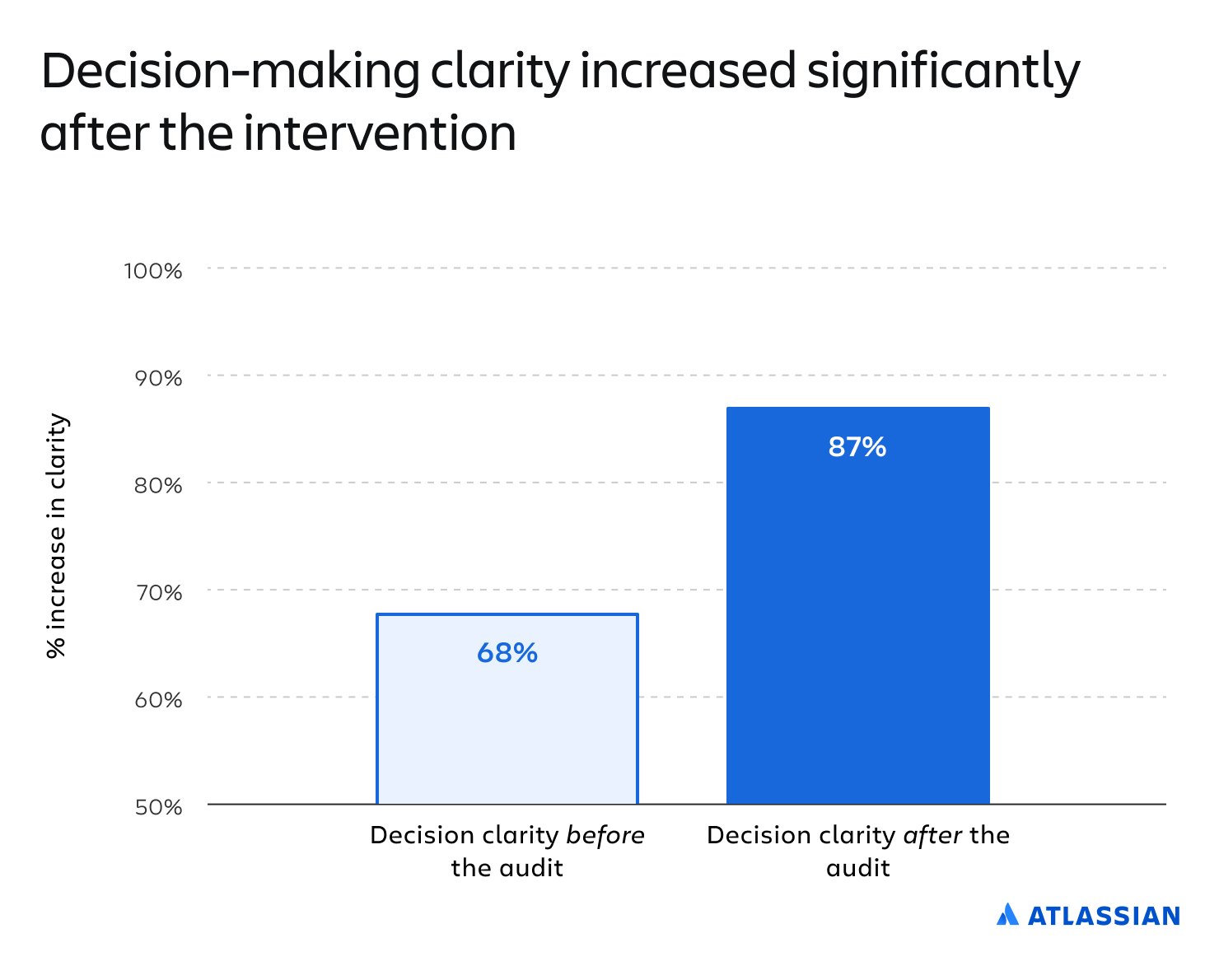
reflecting on previous decisions helped me see how i can approach decisions in the future and if i really need to wait for others to help make the call.
blake williams, individual contributor
supercharge your ability to execute and move work forward
72% of participants felt they could increase the pace of their work as a result of increased decision-making clarity, and 60% made more progress on their top priorities following the audit than they did in a typical week.
we also used a large language model (llm) to identify key themes from participant responses. for instance, we found that the audit increased participants’ self-awareness about their decision-making process.
[the exercise] helped me see my patterns of decision-making, especially how i engage with different stakeholder groups. with this awareness i can avoid being too passive or hesitant with my recommendations.
marjan farid, lead talent development partner
our analysis also showed that the audit improved team communication for those who shared their experience with colleagues, and that 85% would recommend the exercise to a colleague.
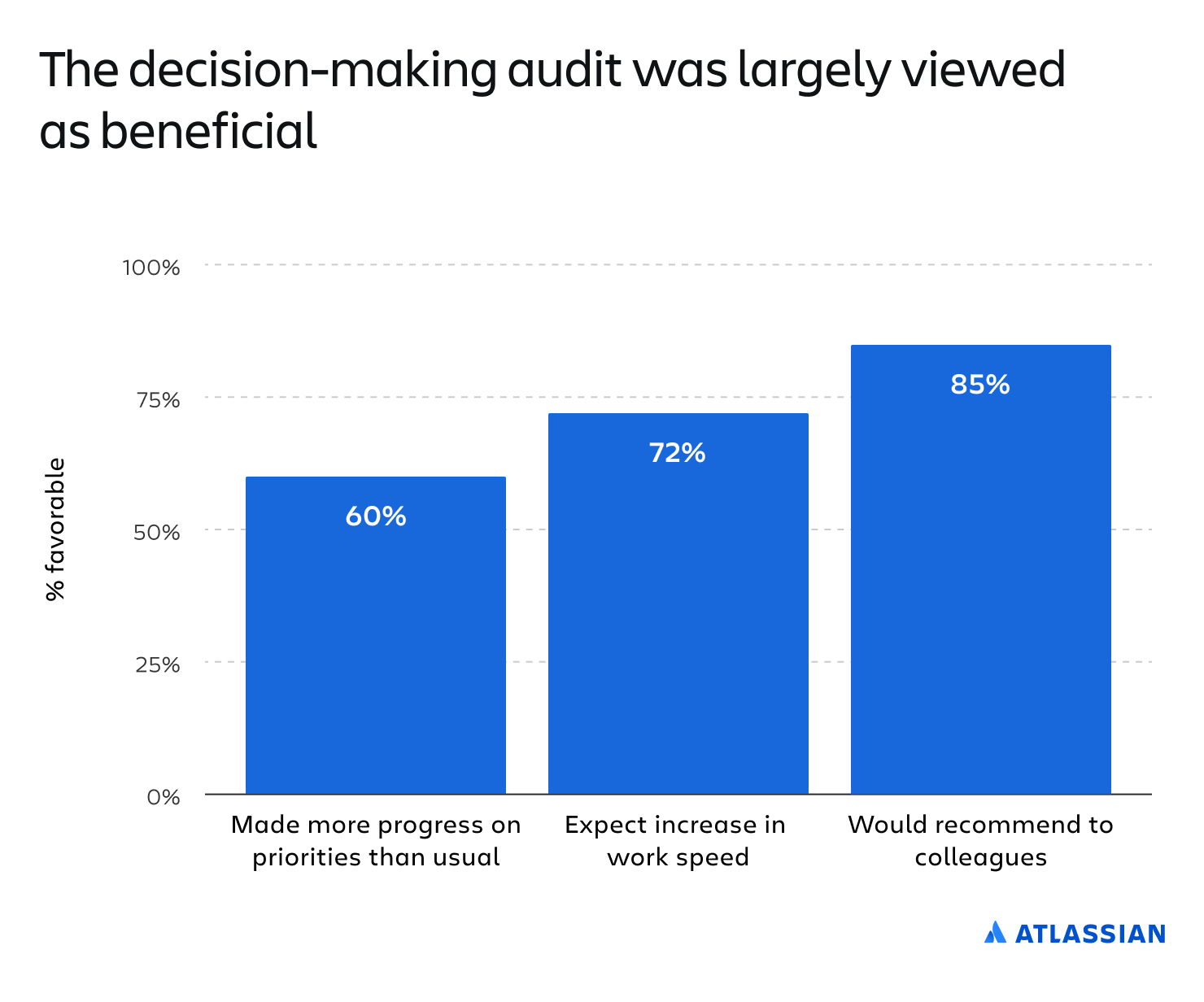
taking the time to audit my decisions was useful and insightful. i want to do it as a regular exercise and think that managers and project managers should do this exercise regularly as well.
dragana k., senior manager
feel empowered to “make the call” by inviting feedback from your manager
those who received feedback from their managers on their decision-making audit benefited more from the exercise, across all measures, than those that didn’t.
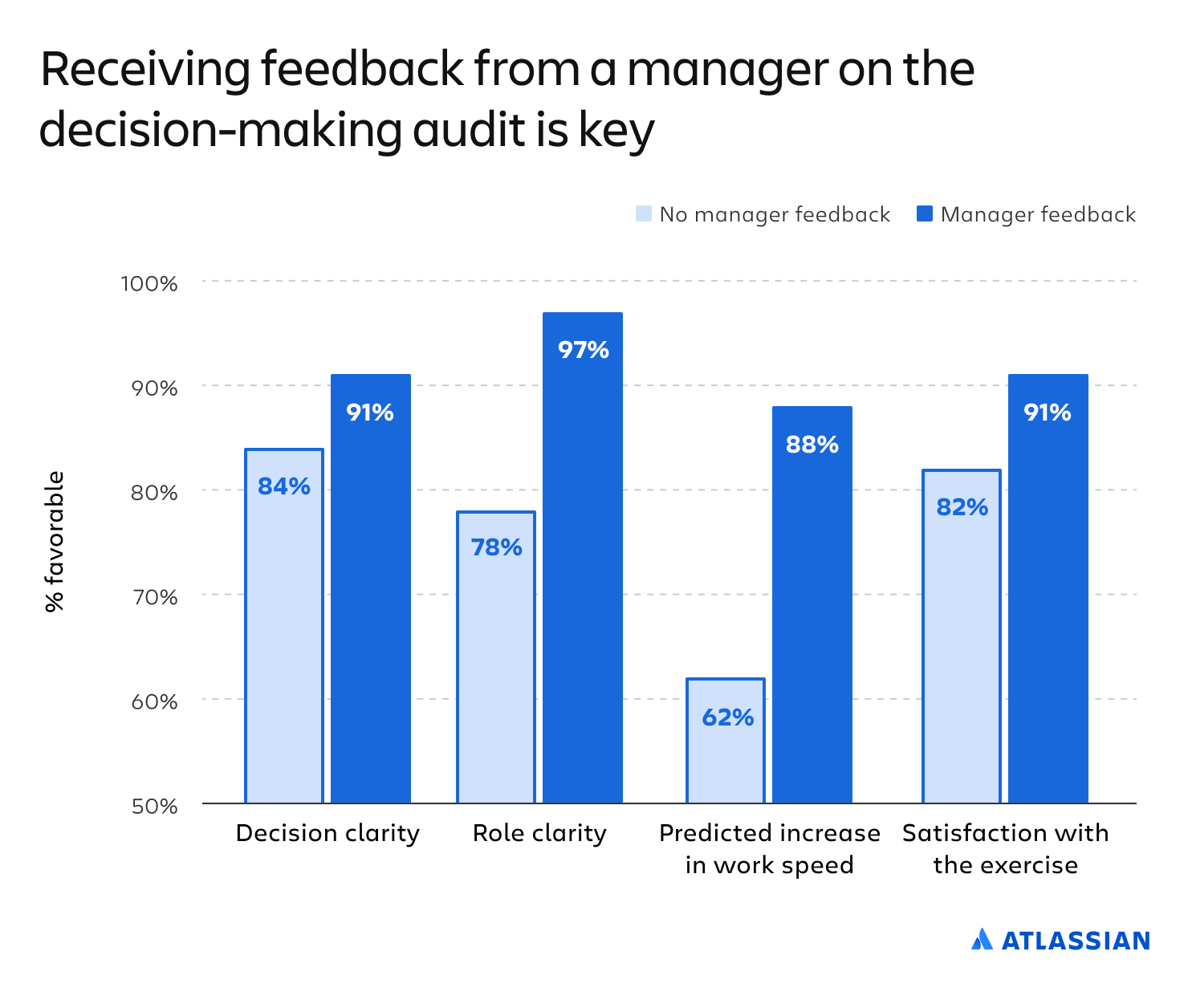
getting feedback from managers on previous decisions boosted participants’ confidence in the decisions they make, which made them feel empowered to move faster and get more done.
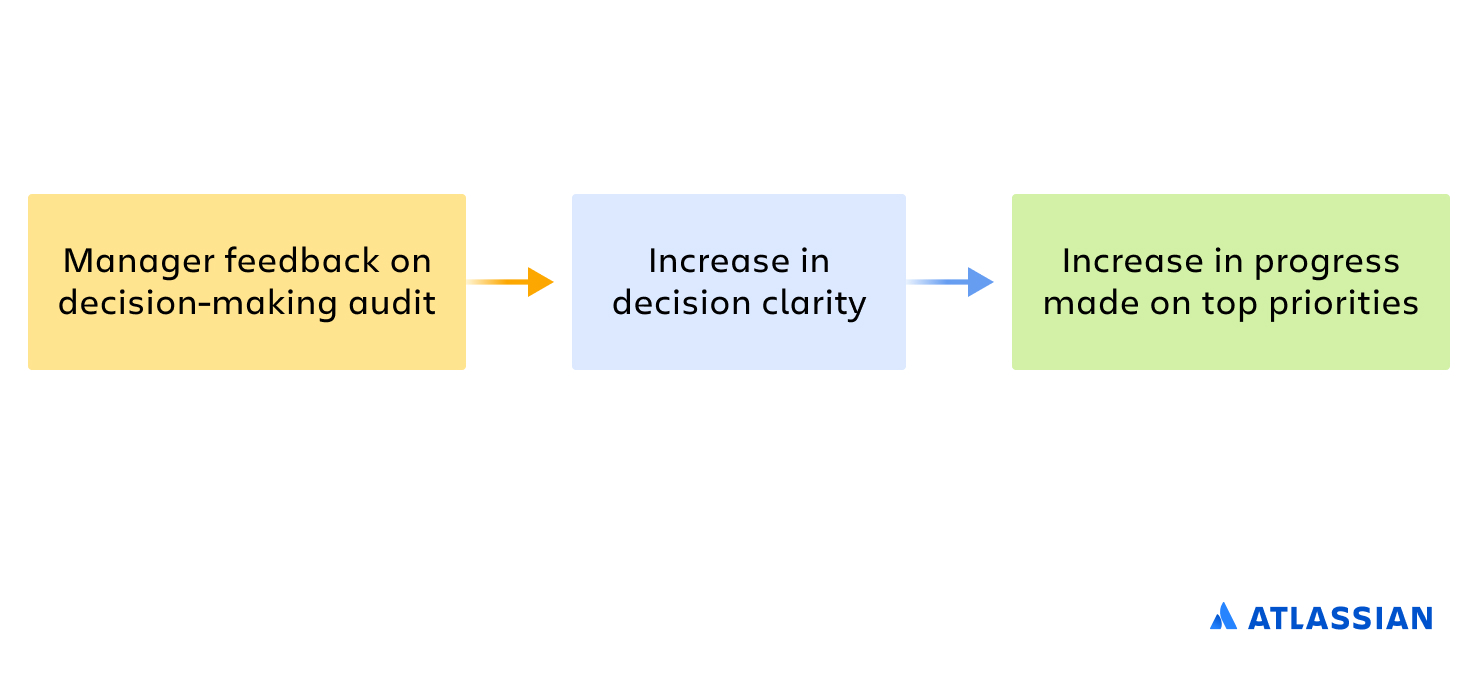
additionally, we heard from participants that discussing the audit with a manager strengthened their working relationship.
ready to make the call?
run your own decision-making audit by answering these questions:
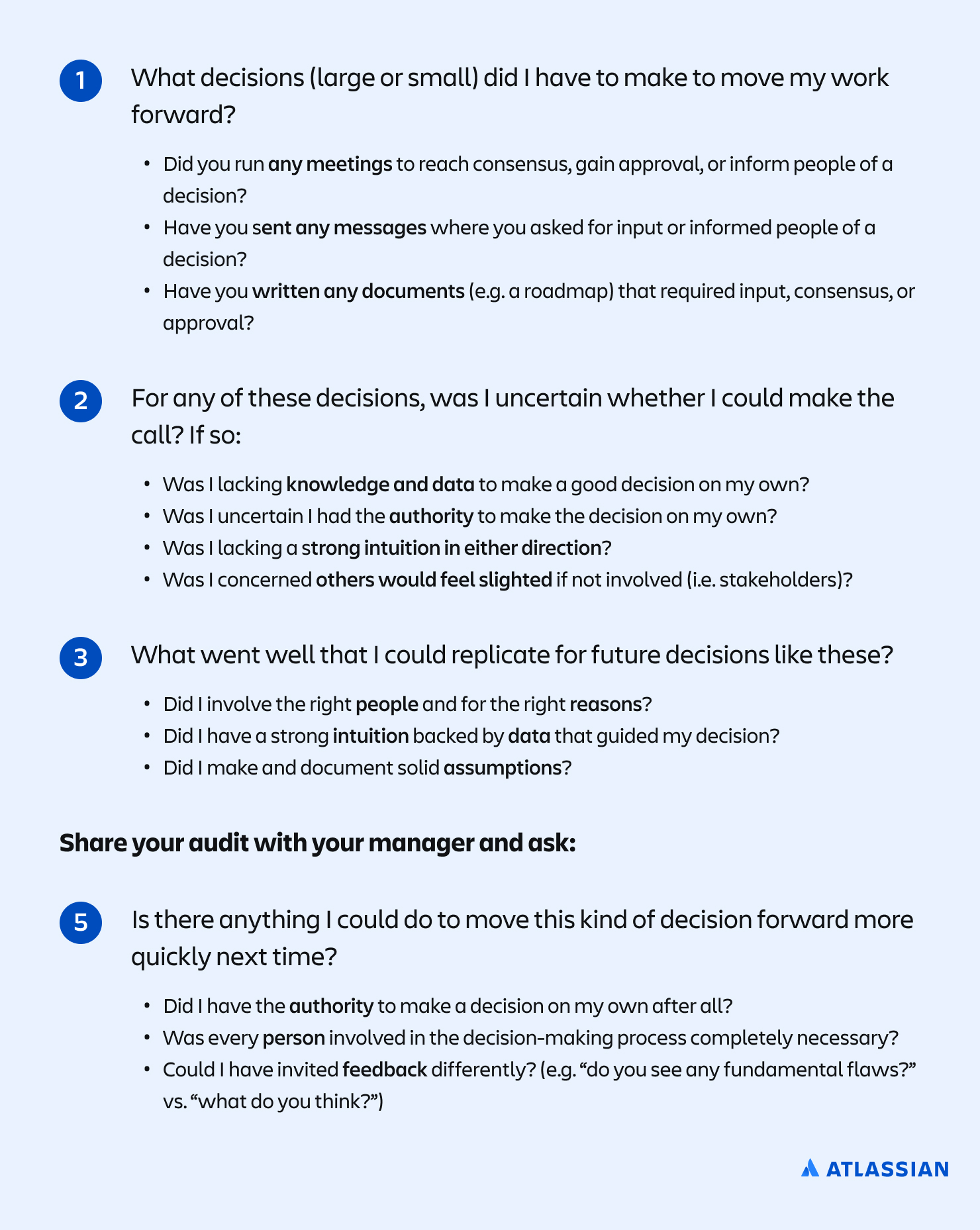
for more tips on how to eliminate common pitfalls and collaborate more effectively, check out the atlassian team playbook.








































